US Church Faces Youth Challenge
Insightful Report from National Dialogue
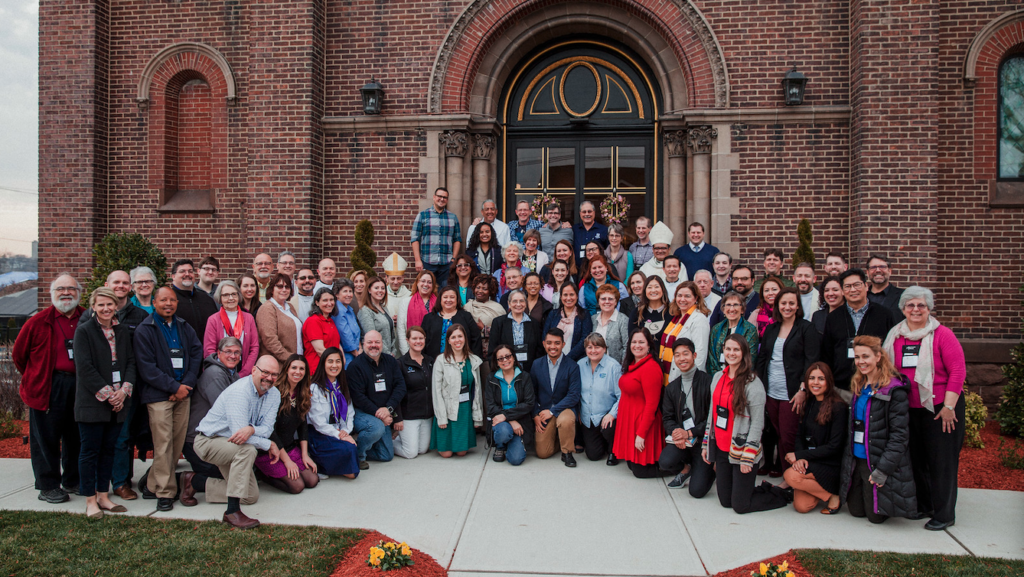
The Church in the United States faces its greatest challenge: youth and young adults.
U.S. Bishops and the U.S. Ministry Together -Pastoral de Conjunto-,composed of numerous institutions of lay leaders who interact with bishops, priests, and religious, both as members and as guides and advisors, have worked for years to discern priorities for national youth and young adult ministry. Surveys and meetings have been held in which some 10,000 adolescents and young adults participated.
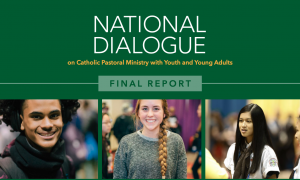 On March 2, a webinar conference was held in English on the conclusions reached by the National Dialogue “On Catholic Pastoral Ministry with Youth and Young Adults,” entitled “Final Report”. A similar conference was offered on March 16 for the Hispanic community, in Spanish. Recognized leaders of the Hispanic community presented the central outlines of the process that led to the aforementioned document and explained in summary form the content and pastoral scope of this text.
On March 2, a webinar conference was held in English on the conclusions reached by the National Dialogue “On Catholic Pastoral Ministry with Youth and Young Adults,” entitled “Final Report”. A similar conference was offered on March 16 for the Hispanic community, in Spanish. Recognized leaders of the Hispanic community presented the central outlines of the process that led to the aforementioned document and explained in summary form the content and pastoral scope of this text.
The voice of 10,000 youth and young adults in 10 points
As a central point, ten recommendations presented in the document were expressed, after a profound process of discernment that the National Dialogue underwent. We could call them “The 10 Commandments of Youth and Young Adults Ministry in the USA.”
These are:
 1- More intentionally connect the life of faith with the lived experiences of young people.
1- More intentionally connect the life of faith with the lived experiences of young people.
2- We all need to do more synodal listening to one another.
3- Address the “authenticity gap.”
4- Increase the investment in accompaniment.
5- Expand ministry with young adults.
6- Reimagine faith formation.
7- Reconsider preparation for the Sacrament of Confirmation.
8- Partner with parents and enhance family ministry.
9- Transform ministry leadership.
10- Embrace complexity.
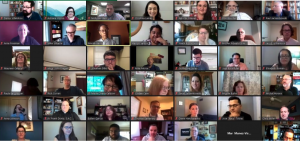 For every one millennial who enters the Church, six leave it
For every one millennial who enters the Church, six leave it
The Bishops are aware of the crisis of values and the loss of faithful in the churches, especially among teenagers and young adults. According to the report that Bishop Robert Barron, then chair of the USCCB Committee on Evangelization and Catechesis, presented at the General Assembly of Bishops in June 2019: 50% of millennials left the Church, and while one enters the Church, six leave. Eighty percent leave before the age of 23. The average age of leaving the Church is 13 years old. At the same time, he presented a report from the Pew Research Center, which shows that 69% of Catholics in the United States believe that the host is a symbol of the Body of Christ and that it is not his real presence.
Faced with this reality, it is not uncommon to hear as a recurring response and eventual solution for the deepening of catechetical formation, the motivation to intellectual knowledge of the truths of the faith, -faith formation-, and the motivation to participate in liturgical acts, especially holy Mass.
Bishop Barron’s response to this problem presented at the next Assembly of Bishops (in November 2019), contained “5 five keys to reaching the religiously unaffiliated. They are: “Get young people involved in the works of justice. Use the via pulchritudinis (Way of Beauty). Stop dumbing down the faith. Turn every parish into a missionary society. Creatively use the new media.”
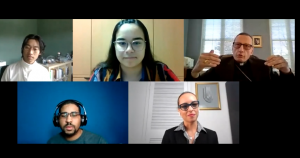 The experience of a great love
The experience of a great love
Motivated by the presentation of Bishop Barron in June 2019 at the Assembly of Bishops, MovCom US, “Catholic Ecclesial Movements and New Communities in the U.S. in Conversation” wrote a letter to Bishop Barron, as chair of the USCCB Committee on Evangelization and Catechesis, and Archbishop Salvatore Cordileone, chair-elect of the Committee on Laity, Marriage, Family Life and Youth, in October 2019, in which they expressed among other concepts:
“We would like to share with you an excerpt from Christus Vivit, where Pope Francis stresses the importance of a personal love in order to be able to participate fully in the life of the Church.
Rather than being too concerned with communicating a great deal of doctrine, let us first try to awaken and consolidate the great experiences that sustain the Christian life. In the words of Romano Guardini, “when we experience a great love… everything else becomes part of it.” (Christus Vivit #212)
Is this not the most important issue facing the Church?
Every company reviews its strategies and results regularly. What firm can bear to lose six clients while gaining only one? Can we afford not to involve the whole Church, all the bishops and all the laity, to analyze together the causes of youth desertion and suggest concrete solutions?
Along with the family and marriage, is this not the most important issue facing the Church in the world? Only when hearts are conquered for the Lord, will all social and apostolic activities, etc., have a profound meaning, not the other way around.
 Young people need life, community, and accompaniment
Young people need life, community, and accompaniment
It is striking that the surveys insistently emphasize the importance of life, of personal witness, of experiences linked to faith, of accompaniment, of walking together, of venturing into new forms of evangelization that reach out to life, of integrating fathers and mothers in the pastoral process, of leaving comfort zones and opening up to diversity, of leaving known and safe structures, and of transforming pastoral leadership into something more experiential, more relational, starting from the reality of the young people, listening to them.
What about framing the “10 Commandments of Youth and Young Adult Ministry in the USA” and hanging them in every pastoral and parish office in the country?
What the Church is doing
As mentioned above, some bishops, priests, laity, and religious are already and have been working on youth and young adult ministry through direct contact with young people. Exaudi consulted Paul Jarzembowski, head of the Department of Youth and Young Adults, and Mar Muñoz-Visoso, executive director of the Secretariat for Cultural Diversity in the Church, both of the USCCB, to find out how the Episcopate is dealing with youth ministry.
Jarzembowski expressed that ” the Church is responding to the challenges presented by the National Dialogue through several initiatives of the United States Conference of Catholic Bishops including
– the formation of a special bishops working group on youth and young adults,
– the engagement of bishops, ministry leaders, and young adults in a three-year intercultural conversation and mobilization process called Journeying Together,
– and following Pope Francis’ lead by recently establishing Christ the King Sunday as the new worldwide day of acknowledging and celebrating young people in our local parishes and communities.”
And he continued, marking the need for openness to the reality of young people, expressing that “These efforts all show that the route forward when it comes to youth and young adults must be one of genuine accompaniment and building up trust across generations and cultures in our communities. Young people want to know that the Church sees them and that it is truly concerned for them, regardless of their past or their level of engagement in the practice of faith. All of these efforts are processes and this is something we have learned from the National Dialogue and from Christus Vivit: namely, that our journey with young people, as we all walk towards Christ, each in our own way, will take time, investment, intentionality, and perseverance… but in the end, we are hopeful for what comes next.”
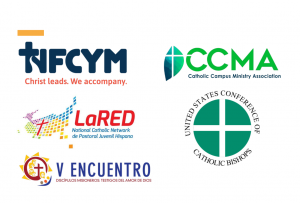 Young people ask for community, to be heard
Young people ask for community, to be heard
For his part, Muñoz-Visoso remarked that “the final report of the National Dialogue confirms the intuition of the Synod and of Pope Francis in Christus Vivit. Young people ask us to listen to them and to accompany them on their journey, letting them be protagonists of their history and without dictating from the outside or from the balcony, solutions to problems that we do not understand and that do not speak to their reality. They ask us to get involved, they ask us for authenticity, but above all they seek to create community, both in person and in virtual communities, their own spaces where their concerns and worries are heard, where they feel they can contribute their ideas, gifts and talents, and where their sense of belonging and growth in faith is strengthened, because it speaks to their daily realities, challenging them and challenging us.”
Journeying Together, an initiative that brings reality down to earth
Regarding the processes of youth integration, the director of Diversity says that “through the ‘Journeying Together’ initiative, our Secretariat, in collaboration with personnel from the Departments of Youth, Education, Evangelization and, more recently, Vocations, is bringing together young people and youth and university pastoral workers with numerous interested bishops in a process of intercultural dialogue. The goal is to bring the good news of the Gospel and the vision of Christus Vivit to young people of all cultural and socio-economic groups and to promote a conversion in responsible adults that will lead to a more authentic and effective pastoral ministry.”
And he closes: “At a time when the country is divided by ideologies, acrimony, hatred, violence, and racism, young people, together with their bishops, are giving us an example of what is possible through dialogue and mutual accompaniment to dream and plan together for a better future. The synodal way works!”
 Bishops, priests, pastoral ministers, shall we acknowledge receipt?
Bishops, priests, pastoral ministers, shall we acknowledge receipt?
Will bishops, priests, pastoral ministers, catechists, and communicators acknowledge what adolescents and young adults insistently and repeatedly ask for?
Will we react and take the 10 suggestions as basic to implement in dioceses, parishes, various institutions, and movements, understanding the central point of the human testimonial community bond as a path to personal conversion in Jesus and growth in faith?
The National Dialogue Report leaves no doubt. This is what young people are waiting for.
The future of the Church is at stake. It depends on all of us that we can be a Church of authentic women and men, of welcome, of embrace, of brothers and sisters, of community, and in this way, make it attractive to all young people and families.
Everything else the Church has to offer will become part of this great love.
Pictures credits: National Dialogue, Paul Jarzembowski, Enrique Soros
Related

Reflection by Bishop Enrique Díaz: Alleluia, alleluia
Enrique Díaz
20 April, 2025
5 min

Christ is Risen! Alleluia! Commentary by Fr. Jorge Miró
Jorge Miró
20 April, 2025
3 min
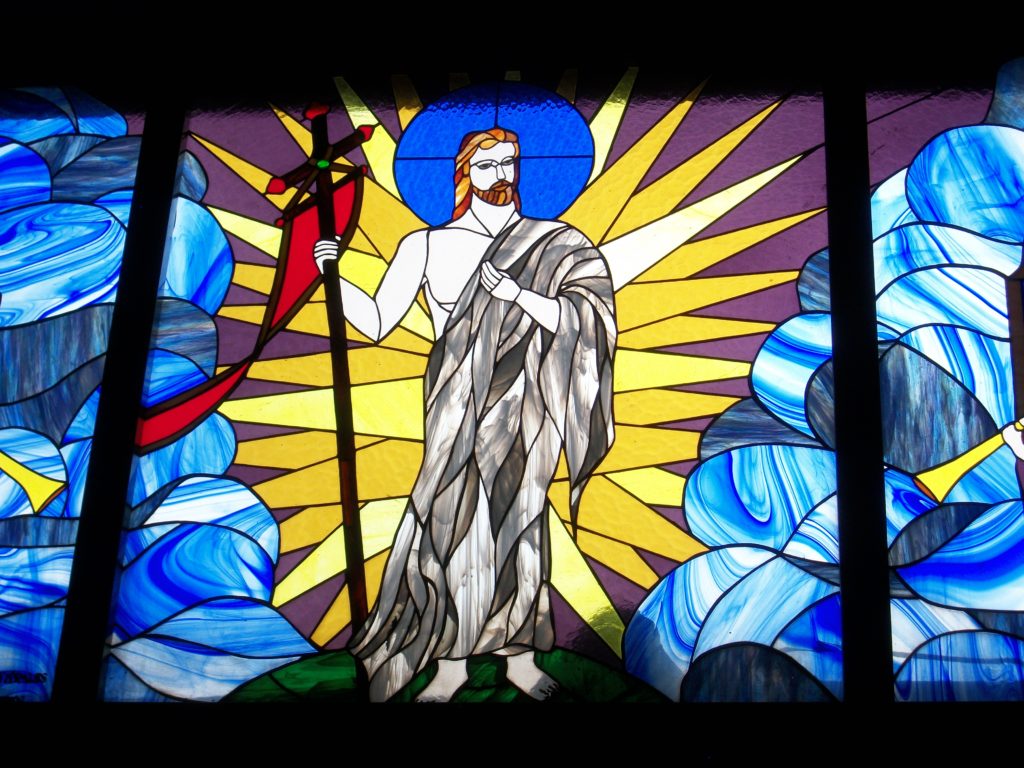
Easter: Mystery of Freedom
Carlos J. Gallardo
20 April, 2025
5 min
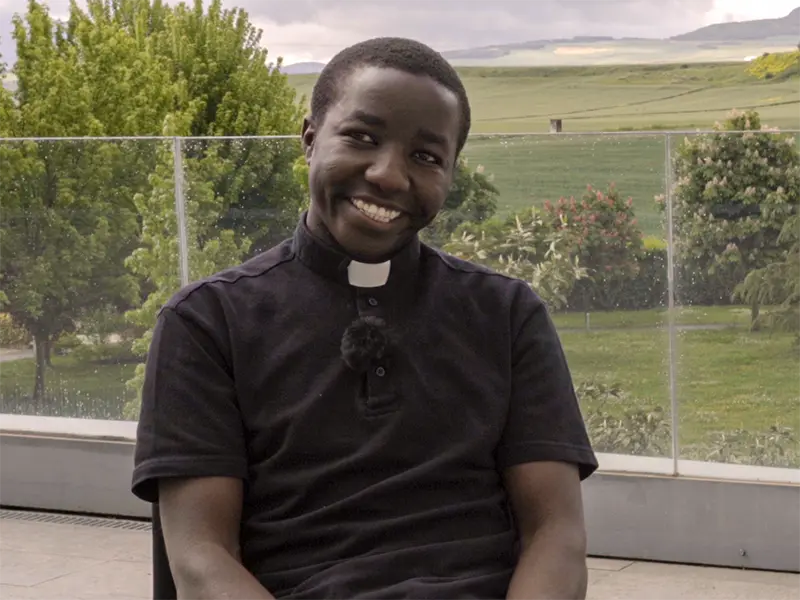
“Being Catholic in Tanzania is a source of pride”
Fundación CARF
16 April, 2025
6 min
 (EN)
(EN)
 (ES)
(ES)
 (IT)
(IT)

